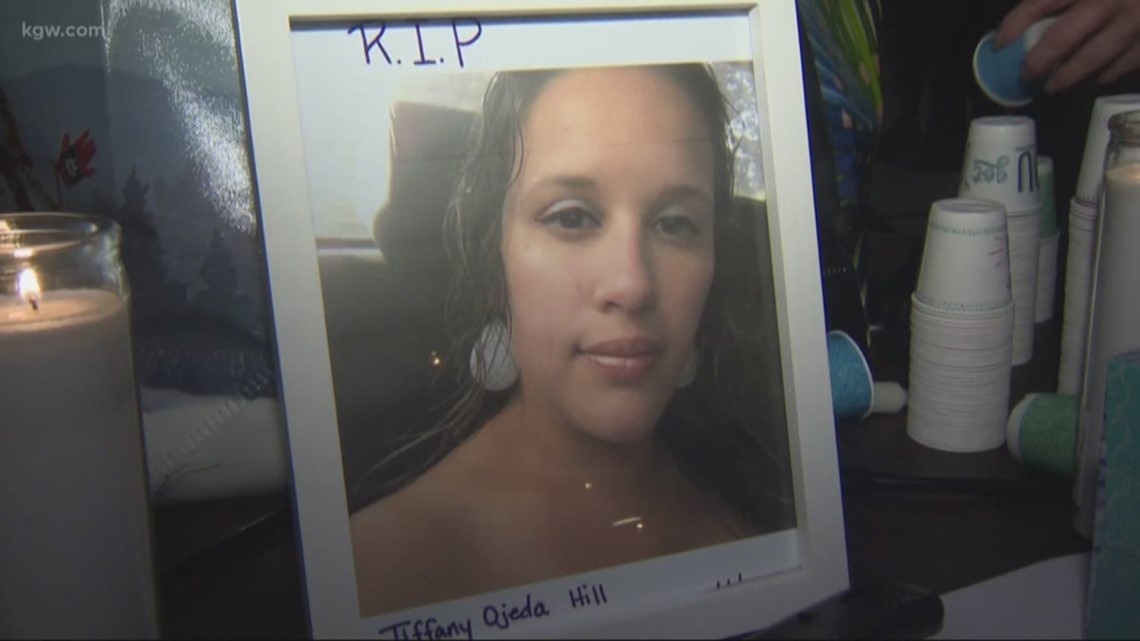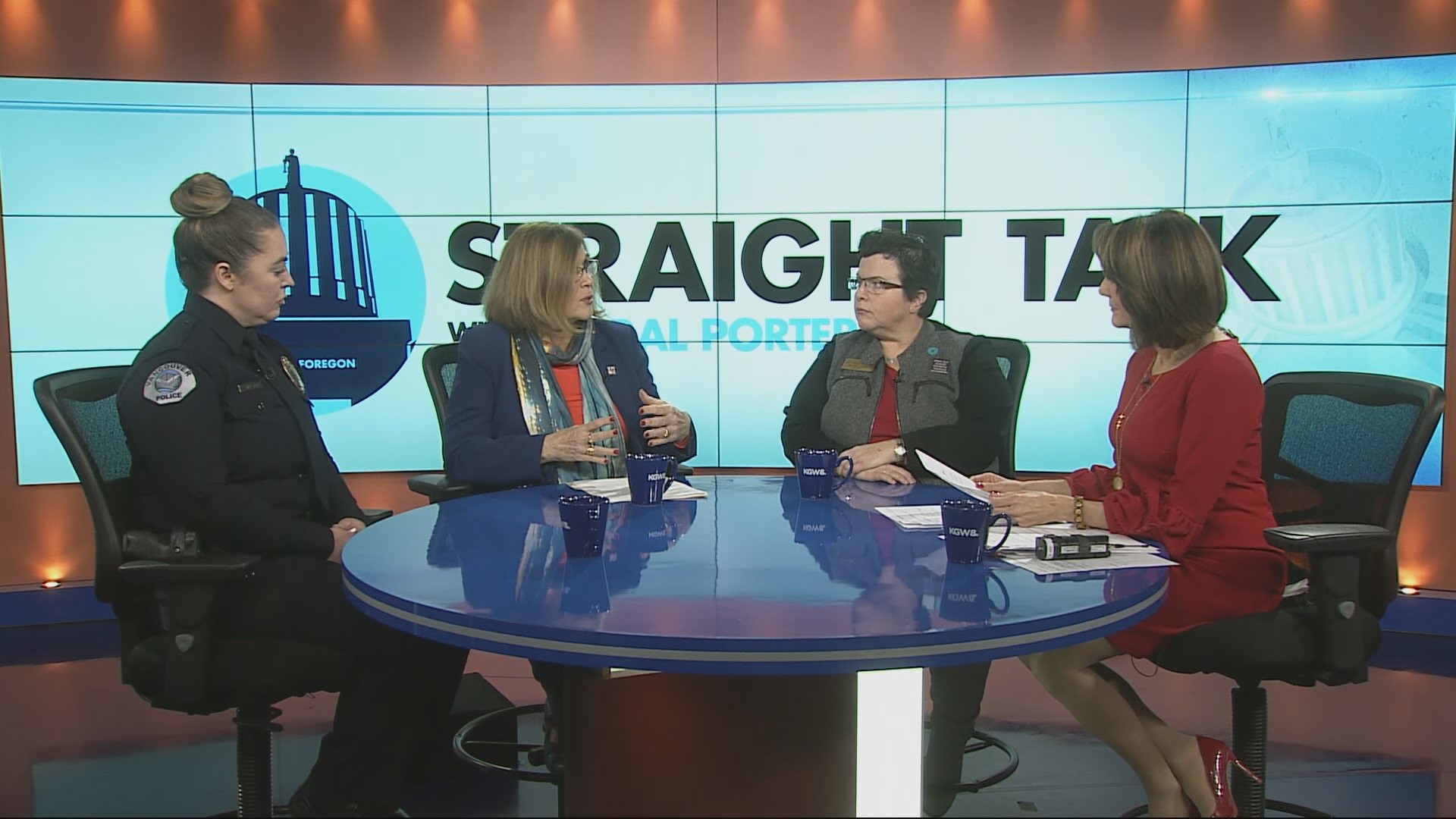PORTLAND, Ore. — The justice system failed Tiffany Hill.
As a result, Washington lawmakers and victims’ advocates are working together to stop what happened to Hill from happening to anyone else.
On Nov. 26, 2019, the 35-year-old mother of three was shot to death by her estranged husband in front of her children outside a Vancouver school. Her husband, Keland Hill, had a restraining order against him, and had bailed out of jail days before.
Vancouver police detective Tanya Wollstein works in the city's Domestic Violence Prosecution Center. She had met with Tiffany a number of times to do a risk assessment and a safety plan. They had been texting the morning before she was murdered.
"She had told me if he sees me, he's going to kill me," Wollstein said.


Wollstein was on duty when the shooting call came in.
At first, they thought it was a school shooting with an active shooter. Later, they learned the victim was Tiffany Hill. She'd been shot by Keland Hill, who fled, and later shot and killed himself.
"I had tried so hard to keep her safe and for this to happen was very, very difficult. It was one of the worst days of my career so far," Wollstein said.
Prosecutor Lauren Boyd had tried to keep Keland Hill in jail. He was awaiting trial on domestic violence charges and had tried to purchase a firearm at Walmart but was denied.
Boyd asked the judge to set bail at $2 million to try to keep Keland Hill behind bars and away from Tiffany. The judge set bail at 250,000 dollars and five days later, Keland Hill was free.
RELATED: 'She was in grave danger': Prosecutor calls for change in bail laws after Vancouver mom's murder
Washington State Rep. Sharon Wylie (D-Vancouver) is trying to change laws regarding bail. She said she was shocked by what happened in Tiffany's case.
"Police and prosecutors did everything right, everything they could within the law. There are gaps in our law we need to change," she said.
Rep. Wylie is working on two pieces of legislation that would change bail laws. Washington State's constitution guarantees all people charged with crimes the right to be released from jail if they post bail, except for capital offenses.
Wylie points out Washington Gov. Jay Inslee implemented a moratorium on the death penalty in 2014, and lawmakers are considering abolishing it all together.
"That means you can get bail unless you've actually killed someone and they know it. And that's just wrong." she said.
One bill Wylie is working on would give judge's discretion to deny bail if a person violates a protective order, and they aren't supposed to have a gun, but try to obtain one.
Under the proposed legislation, in Keland Hill's case, the judge would have been able to deny him bail.
A second companion piece of legislation is a house resolution to change the state constitution to allow a judge to withhold bail in the interest of public safety.
Victims advocate Michelle Bart, co-founder to the National Women's Coalition Against Violence and Exploitation, said she thinks the judge in Keland Hill's case should have set bail at $2 million.
"We need these laws to change, so judges can set bail that high. The system is broken. This legislation is bipartisan across the board. For Tiffany. For the victims before her. And the victims after her. We need to keep pushing for it," she said.
Another bill has already unanimously passed the Washington Senate.
Senate Bill 5149, sponsored by Senator Lynda Wilson (R-Vancouver), would allow a judge to equip an accused abuser with an electronic monitoring device corresponding to an app on a victim's phone.
In Tiffany's case-- it could have let Tiffany know her husband was approaching, and she could have fled to seek help.
If the bill passes the Legislature, and is signed by Gov. Inslee, it will be known as "Tiffany's Law."
Detective Wollstein testified in favor of the legislation before a Washington Senate committee in January.
"In Tiffany's case, Keland was in that parking lot for 20 minutes prior to him attacking Tiffany. Things like this can give victims time to escape. It's extremely important to use technology to protect victims and keep them safe," she said.
Wollstein said domestic violence calls make up about 40% of all calls to the Vancouver Police Department.
There are an estimated 4,300 calls a year to the city, and 2,300 in Clark County.
In 2018, there were 37,035 domestic violence calls in Multnomah County, and 95,723 in the state of Oregon.
Michelle Bart said those numbers show this isn't just somebody else's problem, it's a community problem. Detective Wollstein thinks those numbers could be reduced with education and community awareness.
"We need a campaign like the one that targeted drunk driving," she said.
Wollstein described what happened with the raised awareness about drunk driving as a cultural change.
"It changed driving drunk from something that was somewhat acceptable to something that in most circles is unacceptable," she said.
Wollstein would like to see that same focus and government funding for prevention of domestic violence. She also said education needs to start early.
"I've talked to school children as young as 12 years of age who are in criminally domestic violence-related relationships. They are modeling what they know and see. They see it as something acceptable. They don't know it's a crime," she said.
Wollstein said many children don't know what a healthy relationship looks like.
Michelle Bart also encouraged people to join in community events the week of March 8-14 in a campaign called, "No More Week."
"We need to stop domestic violence and sexual assault and say no more excuses," she said.
The National Domestic Violence Hotline is 1-800-799-SAFE (7233).
Straight Talk airs Saturday and Sunday Feb. 8 and 9 at 6:30 p.m. It's also available as a podcast so listeners can tune in when it's convenient for them.


